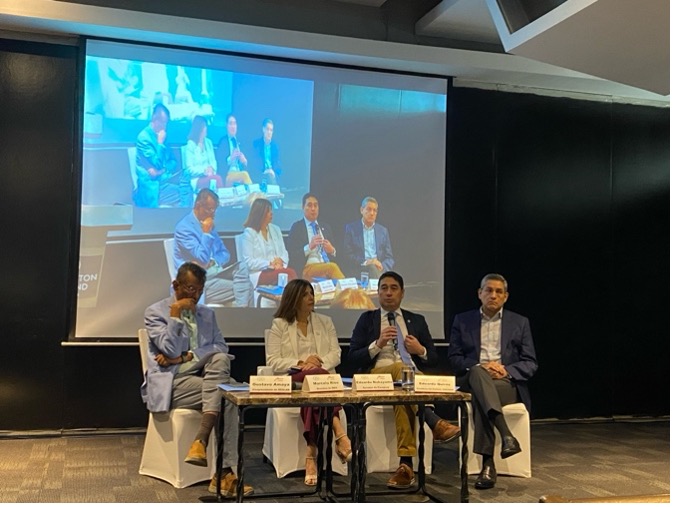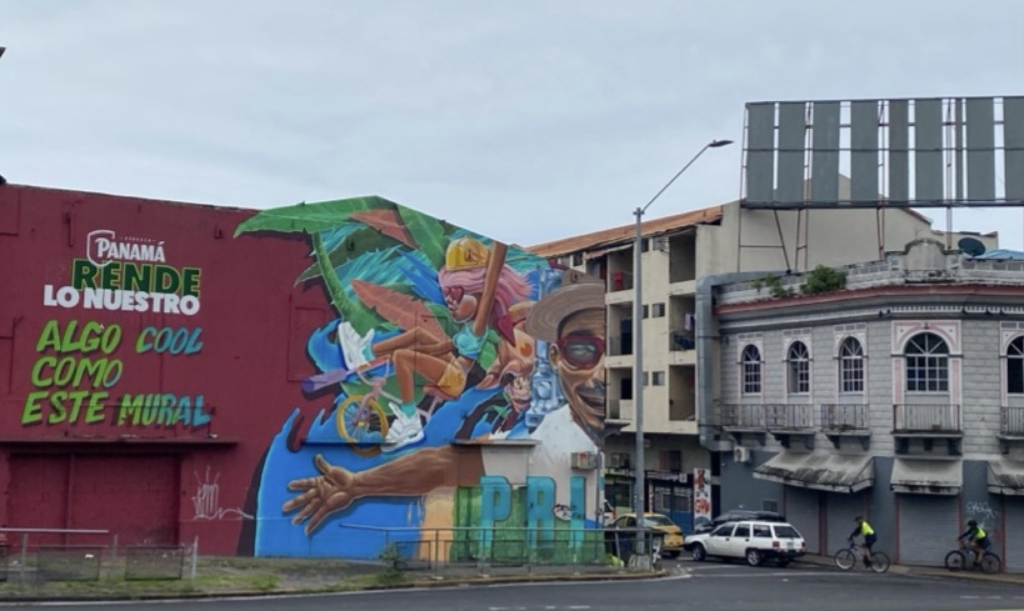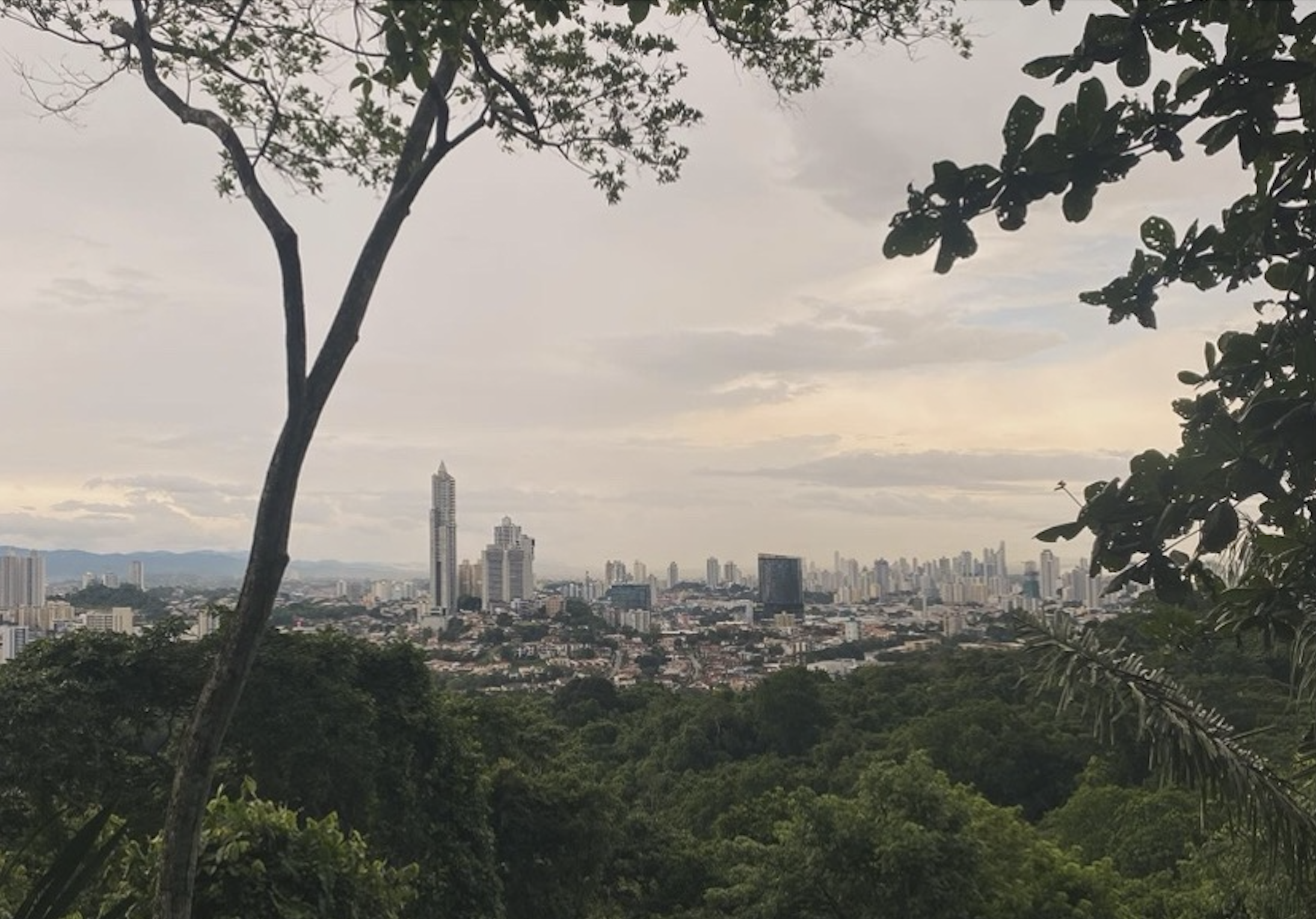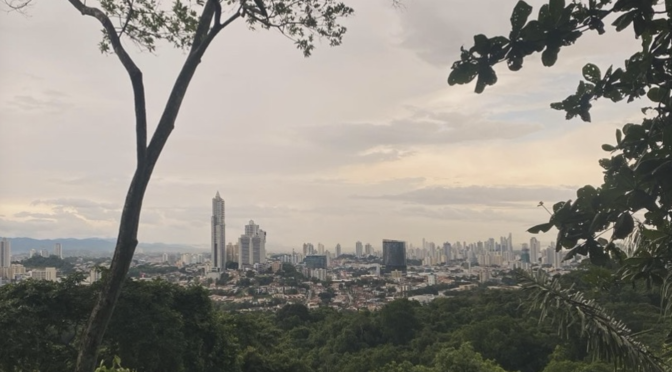By Maria Mercedes Gómez, Graduate student at the UT Teresa Lozano Long Institute of Latin American Studies
My internship working for International IDEA was a mixture of personal and professional development in Panama City. I had previously worked on governmental and academic projects in Latin America, but working directly with an intergovernmental organization took this experience to a completely different level. Not only did I have the opportunity to develop two amazing projects regarding the relationships between democracy and gender and democracy and security, but I was also able to attend important events regarding recent elections like those in Panama and Venezuela.
During this time I was able to accompany the Regional Director for International IDEA, Marcela Ríos Tobar, to the event We are all Venezuela. For this event, I had learn the history of the country and search for data that showed the challenging state it was in. Venezuela faced one of the most challenging elections in its history this year on July 28. Its main candidates were the incumbent Nicolás Maduro competing for his third term in office and Edmundo González Urrutia representing the opposition alliance called the Democratic Unitary Platform. These elections would determine not only who would govern the country for the next six years, but also whether an executive power that has become absolute in the country over time would be solidified or abandoned. Based on IDEA’s Global State of Democracy indicators, Venezuela ranks 147th out of 173 countries on Representation and 173rd on Rule of Law, reflecting critically low levels of performance on key aspects of democracy.

In the last five years, Venezuela has suffered deep setbacks in terms of credible elections, freedom of political parties, equality between social groups, personal integrity, and security. In 1998, Hugo Chavez won the presidential elections with 56.2% of the vote. Chavez sought to create a model of participatory and direct democracy contrary to the traditional model of voting and representative democracy in which it was considered only a certain profile of men would come into power. In 2013, Hugo Chavez passed away and the government called for elections. Nicolás Maduro won narrowly with 50.61% of the vote against Enrique Capriles with 49.12%.
Although the country had one of the largest oil reserves as of 2014, it entered into an economic collapse that has had devastating social impacts. In 2014, Venezuela entered an economic and social crisis that triggered the largest humanitarian emergency in the region, with a massive displacement of approximately 8 million Venezuelans. In 2018, elections divided the country. Juan Guaido was appointed president by the National Assembly but was not recognized by the Maduro regime. This unleashed a series of protests that were violently repressed and began a period of political persecution and constant violation of human rights in the country. Between 2019 and 2021, the government took strong measures and reprisals against its political opponents and it was a time of humanitarian crisis, with the country’s largest exodus of people to neighboring countries such as Colombia, Panama, Ecuador, Chile, and others.
Today more than ever it is important to learn from and support Venezuela, as both parties are declaring victory in the recent presidential elections and Venezuelans are taking to the streets to protest against the regime. Although the election has faced serious challenges, learning about the Venezuelan opposition left me full of admiration because, despite all the obstacles they have faced, Venezuelan society bet on the elections. They hoped for a different future and they fought for—and keep fighting for—their democracy. A democracy can only recover if its society is committed to doing so. And the most important thing at this moment is to show solidarity with Venezuelans and keep in mind that this electoral process commits and unifies us all. This is the century of citizenship and free democracies.

In 1992, Juan Luis Guerra sang “El Costo de la Vida,” a song that described the problems of Latin America and the challenges faced by its inhabitants on a daily basis. “Y la gasolina sube otra vez, el peso que baja, ya ni se ve. Y la democracia no puede crecer, si la corrupción juega ajedrez.”[1] Thirty-two years later, the song is more relevant than ever, and the challenges in the region continue to grow. What is the relationship between security and democracy? Are they the same? Do they depend on each other?
In 2024, 73 countries will hold national elections. In Mexico alone, there were 330 attacks during its recent elections in June 2024, generating the most violent electoral campaign in its history. Eighty percent of the attacks were at the local level, but the violence was mainly due to struggles between criminal groups, not only among themselves, but also with power brokers in government. Further, there is an additional influence of organized crime on democratic processes. Currently, one third of Latin American households are victims of crime. We find ourselves in a moment similar to the totalitarianism of the mid-twentieth century—a moment in which populations are willing to tolerate and sacrifice anything to solve the great problem of security. The success of totalitarianism was the promise of restoring public order. The success of today’s governments is based on who can solve the problem of insecurity.
Challenges in Latin America have grown and transformed in terms of their seriousness and level of organization. The erosion of democratic leadership in some places, the growth of drug trafficking, and the challenges to basic rights in the region have generated a problem of insecurity that, instead of diminishing over time, has grown exponentially. Currently, Latin America has 35% of homicides in the world. According to International IDEA, democracy has been in constant transformation from the 1970s to the 2000s. However, it has weakened in many countries.
Latin America does not have to choose between being a safe society and a democratic society. It is important to seek public policies that do not tolerate crime, but also do not tolerate social exclusion and erosion of rights. We need egalitarian democracies, worthy of their name. Democratic forces need to think urgently about the issue of security as a central element to advancing democracy. But we also need to assess how societies can advance the two concepts together in a positive way rather than having to choose between the two.
It is necessary to observe the economic and social imbalances in the region in order to create effective security policies. Likewise, if democracy is not built correctly, if there is not a good relationship between citizens and the state, there cannot be a balance between security and democracy. It is necessary to strengthen government institutions and the state overall with the voice of the citizens. Further, all must fall under the same standards and security parameters, with equal rights and punishments for both politicians and low-income citizens who have broken the law. Social and power hierarchies, entrenched racism, and unconstitutional practices exist in social contexts and will inevitably continue to exist unless we set out to address the root causes of these discrepancies.
We must think about how we, the public, can bring our voices not only to speak to our needs, but also to communicate effectively with the state to promote assistance to people of diverse backgrounds. We must continue the struggle every day in the hope that we can reach the hearts of many and the minds of others. It is important to mention that 2024 is a year in which eight countries in Latin America have elections. Will this be the end of the current democratic wave? Will governments respond to the needs of their citizens? And will Latin America continue to be a region that keeps democracies alive? For many countries, this hangs in the balance this year.

[1] Juan Luis Guerra, “El Costo de la Vida,” on Areíto, Studio 4:40, 1992.
